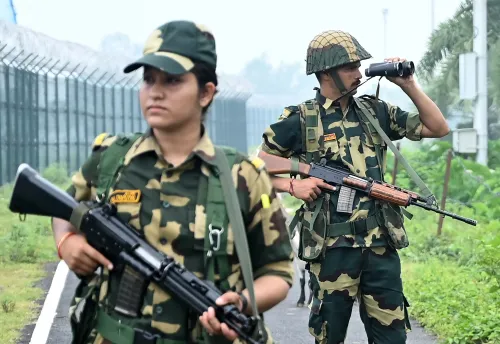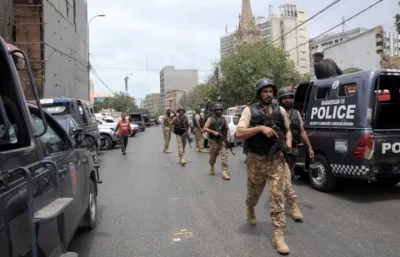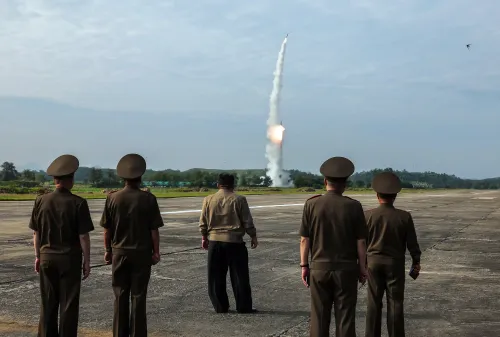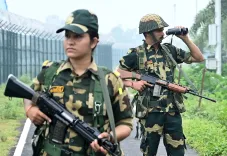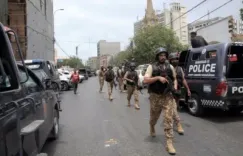Will the Indus Treaty Remain Suspended Until Pakistan Stops Supporting Terrorism?
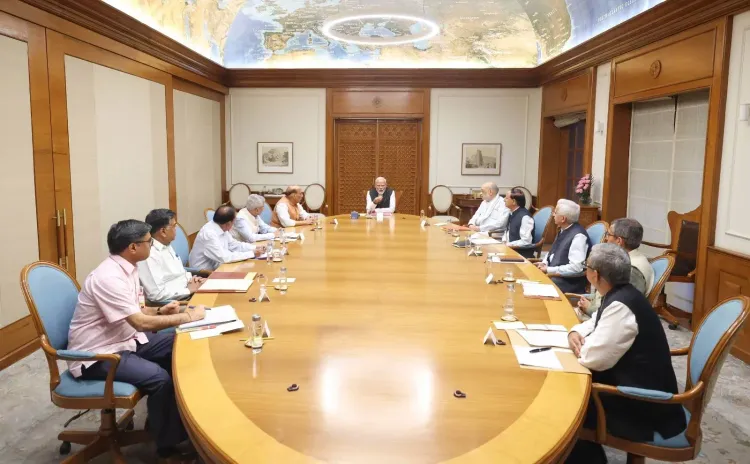
Synopsis
Key Takeaways
- Indus Waters Treaty (IWT) remains suspended until Pakistan ceases support for terrorism.
- India's government demonstrates a strong stance against cross-border terrorism.
- The Resistance Front (TRF) is linked to terrorist activities in India.
- Trade initiatives and diplomatic relations with Pakistan are currently on hold.
- Future discussions with Pakistan will focus on terrorism and security issues.
New Delhi, May 15 (NationPress) External Affairs Minister (EAM) S. Jaishankar emphasized that the Indus Waters Treaty (IWT) will remain inactive until Pakistan ceases to provide refuge to internationally recognized terrorist organizations and individuals engaged in cross-border terrorism against India.
New Delhi had promptly suspended the Indus Waters Treaty of 1960 following the terrorist incident on April 22 in Pahalgam, which resulted in the deaths of 25 Indians and one Nepali citizen, with numerous others injured. The Resistance Front (TRF), an international terrorist group linked to the Pakistan-based Lashkar-e-Toiba (LeT), claimed responsibility for the attack.
Demonstrating a strong stance against terrorism, the Cabinet Committee on Security (CCS), under the leadership of Prime Minister Narendra Modi, declared that the treaty will remain suspended until Pakistan “credibly and irrevocably” renounces its support for cross-border terrorism.
“Concerns regarding water issues have been raised. I would like to reiterate that the CCS and the government are unequivocal that the Indus Waters Treaty is on hold and will remain so until there is a credible and irrevocable cessation of cross-border terrorism by Pakistan. Discussions related to Kashmir have also emerged... Ultimately, the only dialogue we are open to regarding Kashmir is the return of illegally occupied Indian territory in Pakistan-occupied Kashmir,” EAM Jaishankar informed reporters after the inauguration of the Embassy of Honduras in New Delhi.
The Indus Water Treaty, established in 1960, regulates the distribution of water from six rivers—Indus, Jhelum, Chenab, Ravi, Beas, and Sutlej—between India and Pakistan.
India has also taken additional steps, including halting trade and border activities with Pakistan, expelling diplomats from the Pakistani High Commission in New Delhi, and suspending visas for Pakistani nationals in India.
During his address to the nation on Monday, Prime Minister Modi stated that India has only “suspended” its retaliatory measures against Pakistan's terrorist and military camps.
“In the forthcoming days, we will evaluate every action taken by Pakistan based on their approach,” PM Modi added.
EAM Jaishankar also noted that India has accomplished “key goals” during Operation Sindoor, which targeted terrorist infrastructure.
“The Prime Minister has made it abundantly clear that any discussions with Pakistan will solely focus on terrorism. Pakistan has a list of terrorists that they need to extradite; they must dismantle the terrorist infrastructure. They are aware of the necessary actions they must take. We are ready to converse with them regarding terrorism. Those are the dialogues that can occur,” Jaishankar asserted.
He also clarified India's position on halting fire and military operations.
“We successfully achieved our objectives by dismantling the terrorist infrastructure. Given that we accomplished our primary goals, we believe it is reasonable to maintain our stance. At the operation's initiation, we communicated to Pakistan that our strikes targeted terrorist infrastructure, not their military. They had the option to refrain from interference, but they chose not to heed that sound advice. After suffering significant losses on May 10, current satellite imagery clearly illustrates the extent of damage we inflicted compared to the minimal impact they experienced,” Jaishankar concluded.


